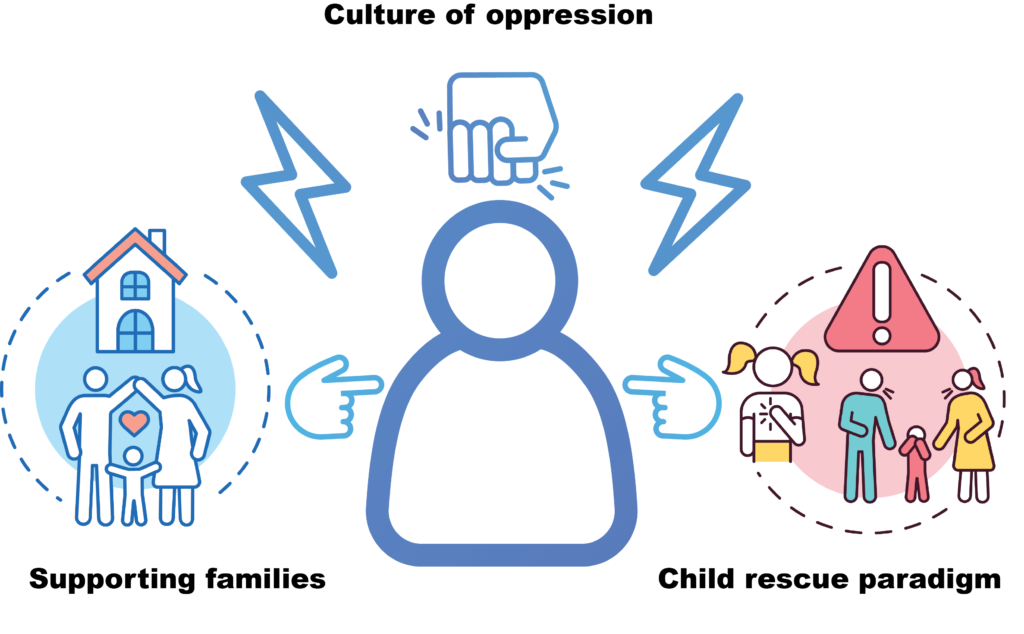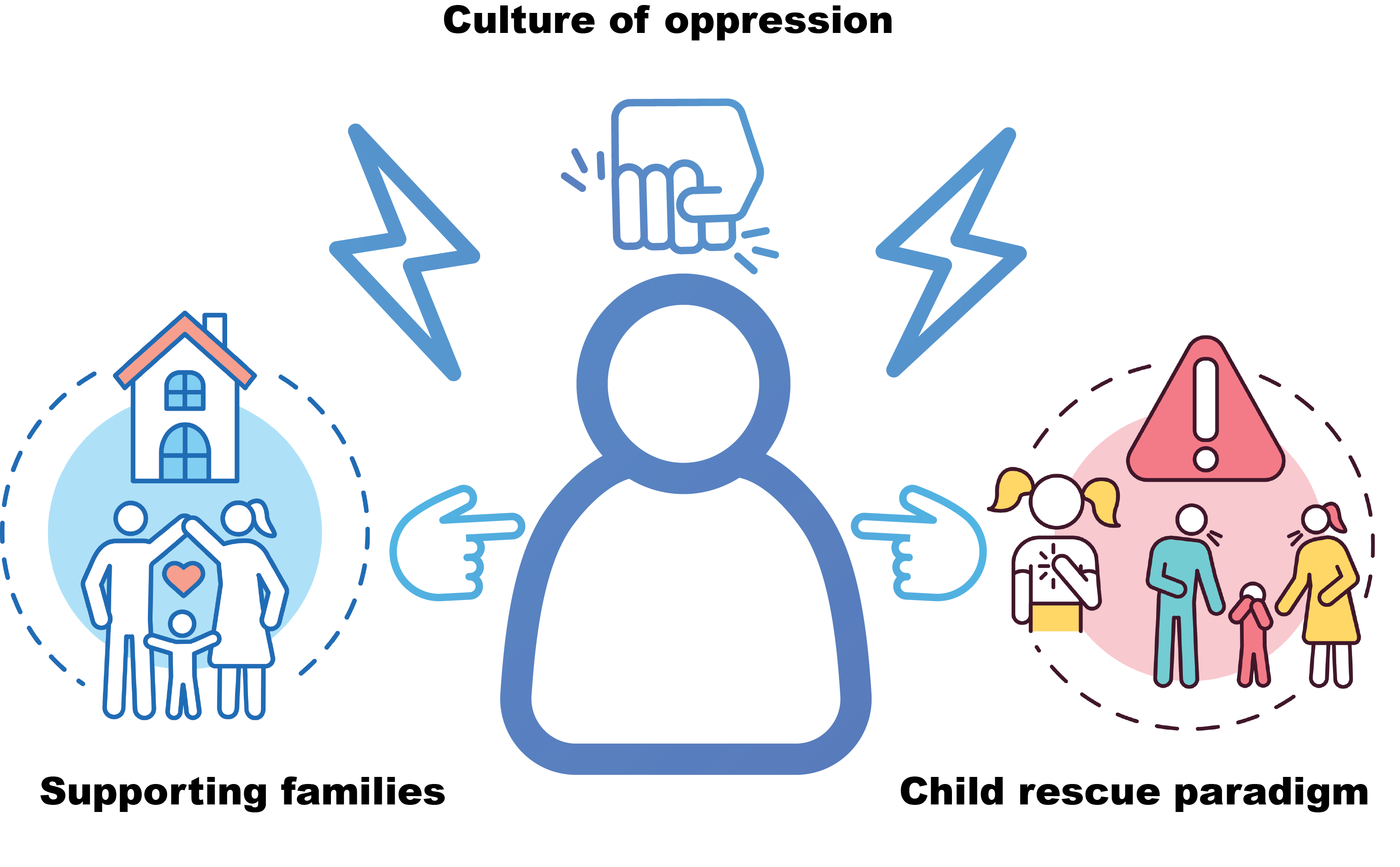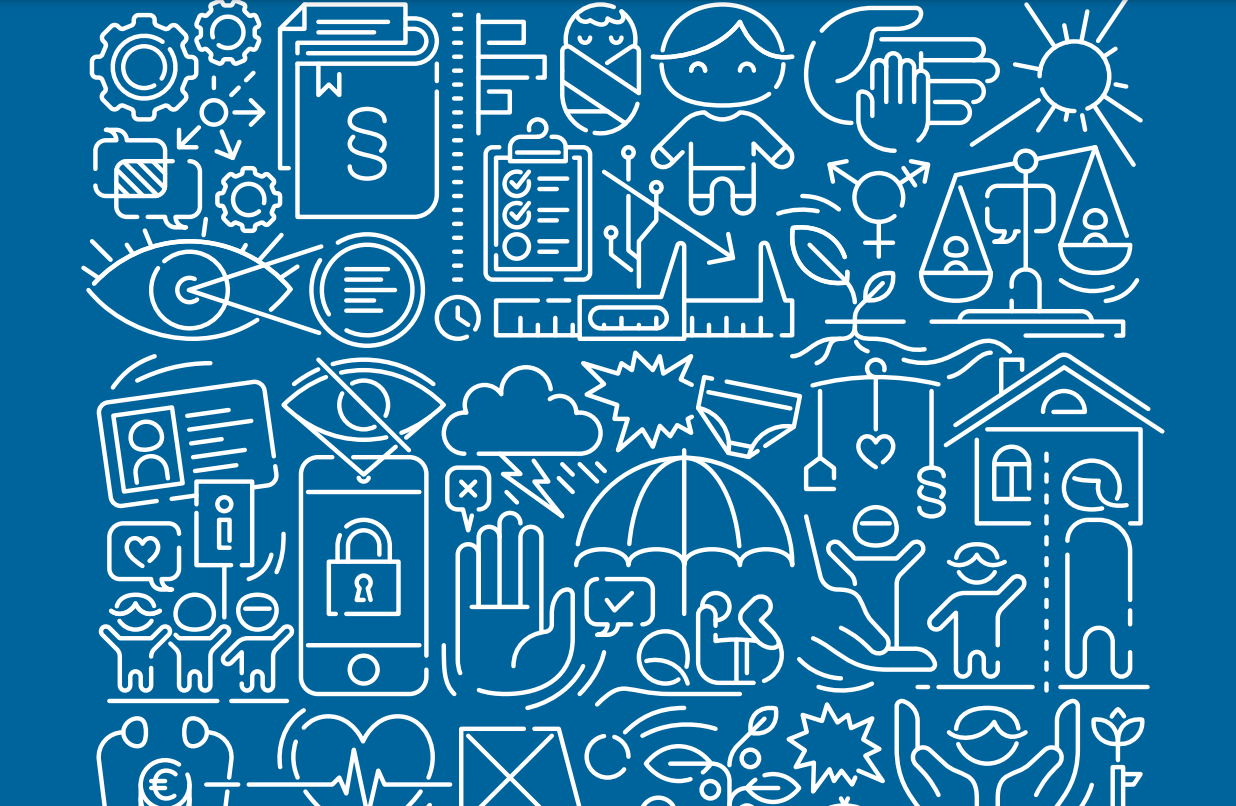Why is family support needed in post-pandemic era?
Fulfilling of Social Rights of Children and Families, #RightsForum21
Blog by Zuzana Konradova, Thematic Coordinator Children in Alternative Care, Eurochild
The COVID-19 pandemic created a crisis for a generation of children worldwide. Pandemic-related restrictions pushed families to the edge as they were unable to access necessary support services. Children were separated from their families and put in institutional care, where they faced higher risk of isolation, abuse and neglect.
During the pandemic in many EU countries, instead of ending the dependence on institutions (from now on, deinstitutionalisation), they were touted as a saviour for children in out of home care. In doing so, not only are countries risking violating children’s right to family but also taking away their opportunity to thrive within a loving home.
We joined forces with Hope and Homes for Children, Lumos Foundation and SOS Children’s Villages International to discuss this and other emerging issues at a session entitled “Fulfilling Social Rights of Children and Families” at the Fundamental Rights Forum 2021.
Shift in child protection reforms – keeping families together
Sadly, child protection systems still prioritise separating children from their family, rather than supporting a family in crisis. This is confirmed by the number of children in alternative care which has not decreased as documented by two surveys across 12 years: Eurochild’s Children in Alternative Care survey from 2009 revealed approximately 1 million of children lived in care. The DataCare research project which aims to map child protection systems across the EU and UK still speaks of 900,000 children placed in alternative care in the EU and the UK.
What if we were to see a family that is unable to provide care instead as a partner with capacity to develop given the support (community-based) and resources? This shift in paradigm is possible with a new way of cooperation with families to rebuild their trust by emphasising the theory of sensitive parenting built on four pillars: listening, hearing, understanding and responding to the needs of the child. The trainers have to become role modelsin setting a new relational culture that the social workers will apply in their relationships with the families. The Know-how Centre for the Alternative Care for Children has been testing this approach as part the EU Child Guarantee, phase III, in Bulgaria.
Furthermore, locally driven community-based services and consulting for vulnerable families are able to flexibly react to increased demand for support services in time of the crises and unexpected situations such as the pandemic outbreak and the earthquake. A good example is SOS Children’s Villages family counselling centres in Lekenik, Glina and Ladimirevci in Croatia.

Inclusion is a right, not a privilege!
Access to education is one of the common reasons for separating children from their families. In many European countries children with disabilities are placed in special schools and boarding schools to be able to participate in education. The Covid-19 pandemic has made the situation worse with 91% of the global student population being affected; more than half of all children with disabilities have faced serious challenges in accessing education. 25%-40% of countries provide education in segregated settings where children lose the opportunity to learn alongside their peers as well as to live in their communities. Inclusive education needs to be recognised as a human right and resourced adequately to enable all children to attend formal education and stay in their family and community. Since inclusive education is a pre-requisite for ending children’s institutionalisation and family separation it must go hand in hand with the deinstitutionalisation process in every country. Civil society organisations can provide many efficient practices such as Inclusive Education TOT Programme for teachers run by Lumos Ukraine.
A way forward
The new EU Strategy on the Rights of the Child and the European Child Guarantee provide a unique opportunity to substantially scale up investment in strengthening integrated child protection systems, family support services and in developing quality family and community-based alternative care.
Children’s and families’ access to services is imperative to fulfill their social rights as declared by the EU Child Rights Strategy and the European Pillar of Social Rights. We do not have to re-invent the wheel; there are many good practices on sensitive parenting, inclusive education programmes and trainings as well as locally based counselling centres for families at risk, already implemented by the civil society organisations worth the inspiration and replication.





